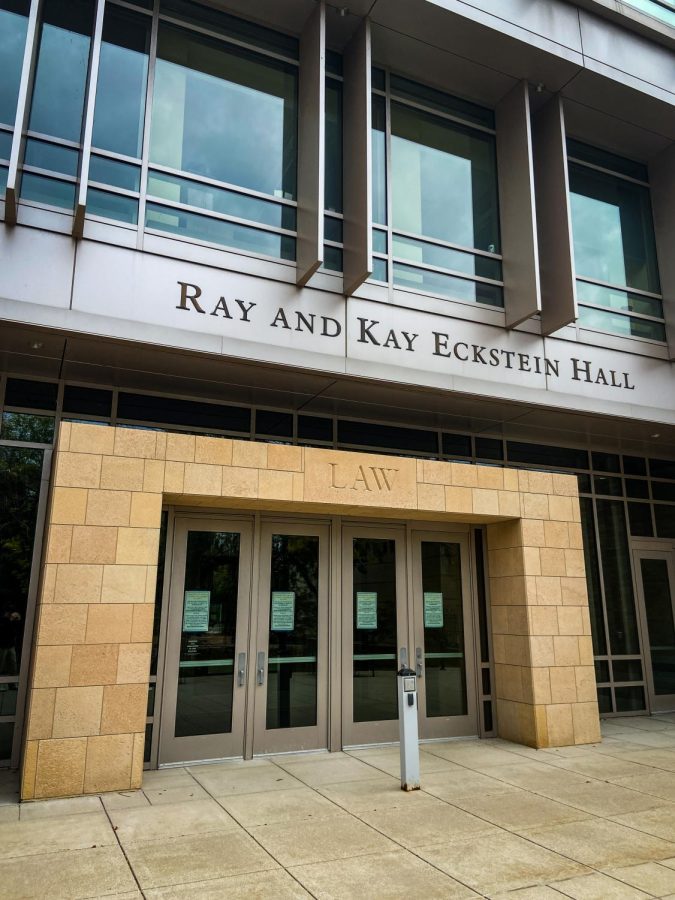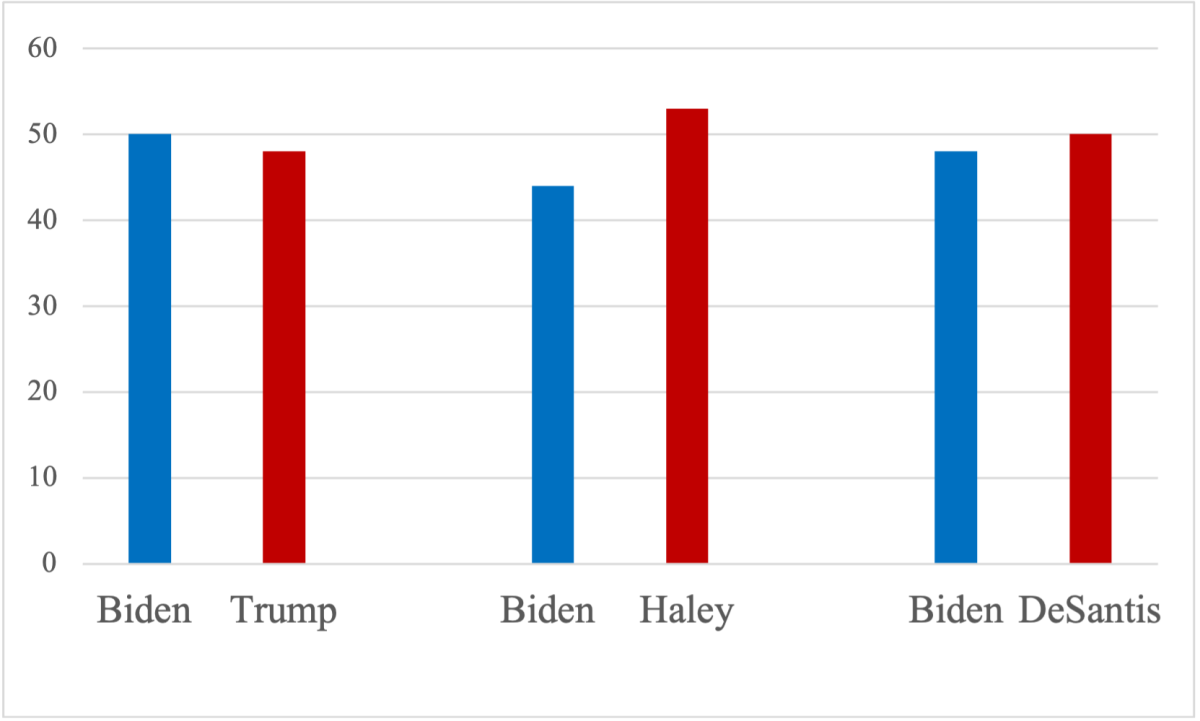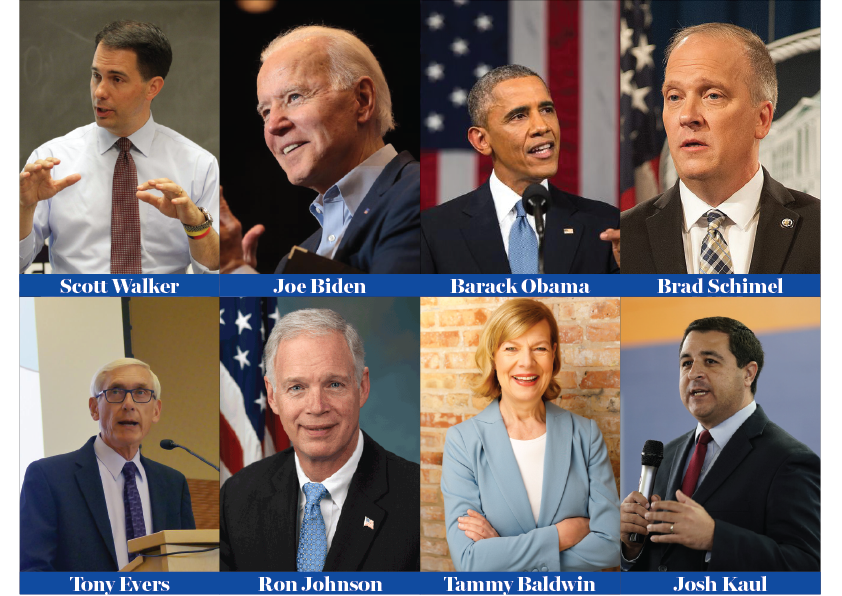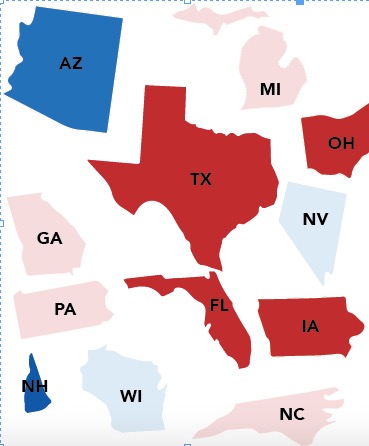After surveying adults nationwide, a recent Marquette Law School poll found a mixed set of views on topics ranging from Supreme Court job performances, withdrawal from Afghanistan, COVID-19 policies and election results.
Director of the Marquette Law School Poll, Charles Franklin, said 1,411 adults were surveyed for these polls, 27% of participants were Republican, 42% Independent and 30% Democratic.
In regard to the Supreme Court’s job performance, university spokesperson Kevin Conway said in a Sept. 22 press release that the poll found a “sharp decline since July” in public opinion of the Court’s performance.
Approval ratings of the court’s performance fell from 60% in July to now 49% in Sept. This is also down from last year’s approval ratings, as 66% approved of the Court’s performance and only 33% disapproved in September 2020.
This decline approval ratings of the Court’s performance stems primarily from Independents and Democrats.
Franklin said he believes the decline in the Supreme Court’s approval ratings is due to the court’s “substantial rulings” between July and September, a few of which go against the Biden administration’s initiatives.
“Whatever people might have seen as moderation on the Court for the past year was followed by three rulings right in a row and close together which all took a conservative tilt,” Franklin said.
One of the rulings Franklin correlates to the decline in Supreme Court approval ratings was in regard to Texas’s new abortion laws, which bans abortions once a cardiac activity is detected. This time period is usually around six weeks before some women know they’re pregnant.
Support for overturning Roe v. Wade, which established a right to abortion, remains a minority view as 20% favor overturning the case while 50% opposed to such a ruling. Twenty-nine percent said they don’t have an opinion.
“That 29% is kind of striking as that’s a lot of people without an opinion on this issue that has been so controversial for so long,” Franklin said.
Robert Miller, a junior in the College of Arts & Sciences, said the decline of Supreme Court approval ratings is most likely due to their evolvement from “interpreters of the law,” which is what the Constitution intended, to now “creators of the law.”
Miller also said the low approval ratings could be due to partisan divides on the Court.
“The most moderate justice we have seen, with respect to court rulings, would be Justice John Roberts,” Miller said. “The urge to create partisan judges has increased, unfortunately.”
The poll also found “strong partisan divides” on U.S. withdrawal from Afghanistan as 36% approved and 63% of participants disapproved. Within these statistics, more than 90% of Republicans disapproved.
In regard to COVID-19 policies, a majority of respondents supported efforts requiring teachers and students to wear masks while 30% opposed such mask mandates — Republican parents of children under 18 being the most opposed.
Izzy Osbourne, a junior in the College of Arts & Science and political science major, said she believes Republican parents are the most opposed to mask mandates because they perceive it as an infringement on their individual rights and want their children to model these same ideals.
“Especially in cases where behaviors symbolize political beliefs, parents want their kids to reflect their own morals and kids learn from watching their parents model these ideals,” Osbourne said.
Election results also continue to be a topic of debate, as 40% of participants said they were either “not too or not at all confident” about the election results. These results are also along partisan divides, as the proportion of those doubting election outcomes fall 9 in 10 among strong Republicans.
Miller said partisan divides on topics like Afghanistan, COVID-19 policies and election results are due to the “dishonorable rhetoric by all leaders of both parties.”
Rather than creating free-thinking politicians, Miller said the ostracizing of party members deemed “disloyal” have been at an overdrive for the last decade.
“These elected officials appear to care more about making headlines, instead of headway,” Miller said.
This story was written by Claire Driscol. She can be reached at [email protected]








